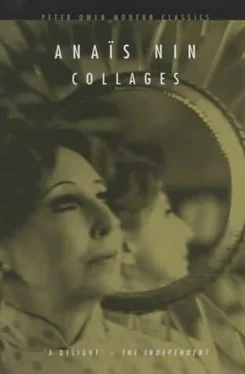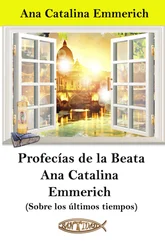“My mother told me that she became pregnant while still nursing me. Slowly I realized that this other child, my brother, had absorbed all the nourishment away from me, thus leaving me without marrow in my bones.”
WHEN BRUCE FIRST CAME TO VIENNA Renate noticed him because of his resemblance to one of the statues which smiled at her through her bedroom window. It was the statue with wings on its heels, the one she was convinced traveled during the night. She observed him every morning while eating her breakfast. She was certain she could detect signs of long journeys. His hair seemed more ruffled, there was mud on his winged feet.
She recognized in Bruce the long neck, the runner’s legs, the lock of hair over the forehead.
But Bruce denied this relationship to Mercury. He thought of himself as Pan. He showed Renate how long the downy hair was at the tip of his ears.
Familiarity with the agile, restless statue put her at ease with Bruce. What added to the resemblance was that Bruce talked little. Or he talked with motions of his body and the gestures were more eloquent than the words. He entered into conversation with a forward thrust of his shoulders, as if he were going either to fly or swim into its current, and when he could not find the words he would shake his body as if he were executing a jazz dance which would shake them out like dice. His thoughts were still enclosed within his body and could only be transmitted through it. The words he was about to say first shook his body and one could follow their course in the vibrations running through it, in the shuffling rhythm of his feet. Gusts of words agitated every muscle, but finally converged into one, at the most two words: “Man, see, man, see here, man, oh man.”
At other times they rushed out in rhythmic patterns like variations in jazz so swift one could barely catch them. He was looking for words equivalent to jazz rhythms. He was impatient with sequences, chronology, and construction. An interruption seemed to him more eloquent than a complete paragraph.
But Renate, having been trained for years to read the unmoving lips of statues, heard the words which came from the perfect modeling of Bruce’s lips. The message she heard was: “What does one do when one is fourteen times removed from one’s true self, not two, or three, but fourteen times away from the center?”
She would start with making a portrait of him. He would see himself as she saw him. That would be a beginning.
They worked together for many afternoons. What Bruce observed was compassion in her voice, what he saw under her heavy sensual eyelids was a diminutive image of himself swimming in the film of emotion which humidified her eyes.
“Come with me to Mexico,” said Bruce. “I want to wander about a little until I find out who I am, what I am.”
And so they started on a trip together. Bruce wanted to put space and time between the different cycles of his life.
It ws during the long drives through hot deserts, the meals at small saffron-perfumed restaurants on the road, the walks through the prismatic markets to the tune of soft Mexican chants that he said, as Renate’s father had said: “I love to hear you laughing, Renate.”
If the heavy rains caught them in their finest clothes, on the way to a bullfight, Renate laughed as if the gods, Mexican or others, were playing pranks. If there were no more hotel rooms, and if by listening to the advice of the barman they ended in a whorehouse, Renate laughed. If they arrived late at night, and there was a sandstorm blowing, and no restaurants open, Renate laughed.
“I want to bring all this back with us,” she said once.
“But what is this?” asked Bruce.
“I am not sure. I only know I want to bring it back with us and live according to it.”
“I know what it is,” said Bruce, spilling the contents of their valises over the beds, and searching for the alarm clock. Then he repacked negligently, and as they drove away, a few hours later, on a deserted road, he stopped, wound up the alarm clock, and left it standing on the middle of the road. As they drove away, it suddenly became unleashed like an angry child, the alarm bell rang like a tantrum, and it shook with fury and protest at neglect.
Sometimes they stopped late at night in a motel which looked like a hacienda. The gigantic old ovens, shaped like cones, had been turned into bedrooms. The brasero in the center of the tent-shaped room threw its smoke to the converging opening at the top. The cold stone was covered with red and black serapes. Renate would brush her long hair. Bruce would go out without a word. His exit was like a vanishing act, because he made no announcement, and was followed by silence. And this silence was not like an intermission. It was like a premonition of death. The image of his pale face vanishing gave her the feeling of someone seeking to be warmed by moonlight. The Mexican sun could not tan him. He had already been permanently tinted by the Norwegian midnight sun of his parents’ native country.
From occasional vague descriptions, Renate had understood that his parents had brought him up in this impenetrable silence. They had a language they talked between themselves and had only a broken form of English to use with the child. They had left him in America at the age of eleven, without any words of explanation, returned to Norway, and let him be brought up by a distant relative.
“Distant he was,” said Bruce once, laughing. “My first job was given to me by a neighbor who owned the candy machines in which kids put a penny and get candy and sometimes if they are lucky, a prize. The prizes were rings, small whistles, tin soldiers, a new penny, a tie pin. My job was to insert a little glue so the prizes would never come down the slot.”
They laughed.
When I met you in Vienna, I was on my way to see my parents. Then I thought: what’s the use? I don’t even remember their faces.”
Before he had left the room, they had been drinking Mexican beer. He said looking at his glass and turning it in his hand: “When you are drunk an ordinary glass shines like a diamond.”
Renate added: “When you are drunk an iron bed seems like the feather bed of sensual Sultans.”
He rebelled against all ties, even the loving web of words, promises, compliments. He left without announcing his return, not even using the words most people uttered every day: “I’ll be seeing you!”
Renate would fall asleep in her orange shawl, forgetting to undress. At first she slept, and then awakened and waited. But waiting in a Mexican hotel in the middle of the desert with only the baying of dogs, the flutter of palm trees by candlelight, seemed ominous. And so one night she went in search of him.
The countryside was dark, filled with fireflies and the hum of cicadas. There was only one small cafe lit with orange oil lamps. Peasants in dirty white suits sat drinking. A guitarist was playing and singing slowly, as if sleep had half-hypnotized him. Bruce was not there.
Returning along the dark road she saw a shadow by a tree. A car passed by. Its headlight illumined the side of the road and two figures standing by a tree. A young Mexican boy stood leaning against the vast tree trunk, and Bruce was kneeling before him. The Mexican boy rested his dark hand on Bruce’s blond hair and his face was raised towards the moon, his mouth open.
Weeping Renate ran back to the room, packed and drove away.
She drove to Puerta Maria by the sea where they were exhibiting her paintings. And the image of the night tree with its flowers of poison was replaced by her first sight of a coral tree in the glittering sunlight.
It eclipsed all the other trees with the intensity of its orange flowers growing in tight wide bouquets at the end of bare branches, so that there were no leaves or shadows of leaves to attenuate the explosion of colors. They had petals which seemed made of orange fur tipped with blood-red tendrils. It was the flower from the coral tree which should have been named the passion flower.
Читать дальше












